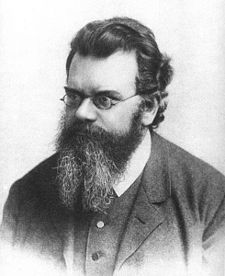(Submitted on 7 Oct 1997)
In two respects Ludwig Boltzmann was a pioneer of quantum mechanics. First because in his statistical interpretation of the second law of thermodynamics he introduced the theory of probability into a fundamental law of physics and thus broke with the classical prejudice, that fundamental laws have to be strictly deterministic. Even Max Planck had not been ready to accept Boltzmann's statistical methods until 1900. With Boltzmann's pioneering work the probabilistic interpretation of quantum mechanics had already a precedent. In fact in a paper in 1897 Boltzmann had already suggested to Planck to use his statistical methods for the treatment of black body radiation. The second pioneering step towards quantum mechanics was Boltzmann's introduction of discrete energy levels. Boltzmann used this method already in his 1872 paper on the H-theorem. One may ask whether Boltzmann considered this procedure only as a mathematical device or whether he attributed physical significance to it. In this connection Ostwald reports that when he and Planck tried to convince Boltzmann of the superiority of purely thermodynamic methods over atomism at the Halle Conference in 1891 Boltzmann suddenly said: ``I see no reason why energy shouldn't also be regarded as divided atomically.'' Finally I would like to mention, that Boltzmann in his lectures on Natural Philosophy in 1903 already anticipated the equal treatment of space coordinates and time introduced in the theory of special relativity. Furthermore in the lectures by Boltzmann and his successor Fritz Hasenöhrl in Vienna the students learned already about noneuclidean geometry, so that they could immediately start to work when Einstein's general theory of relativity had been formulated.
To download the article click on the link below:
https://arxiv.org/abs/physics/9710007


إرسال تعليق